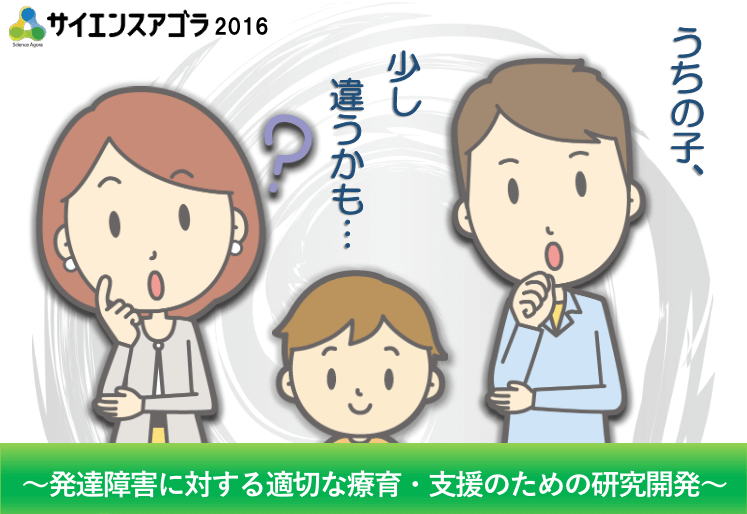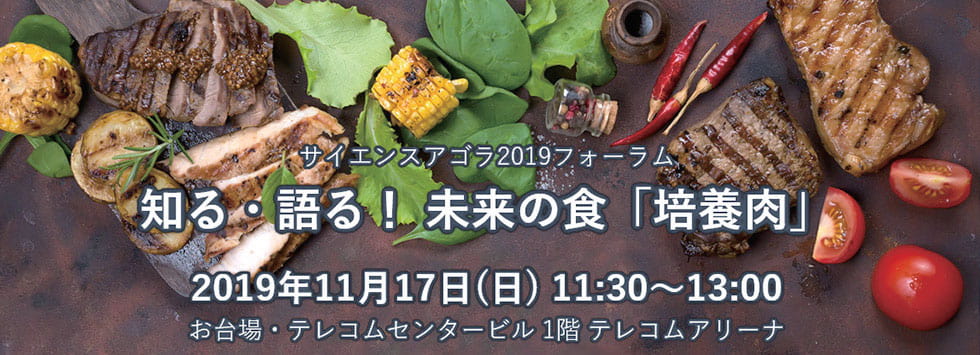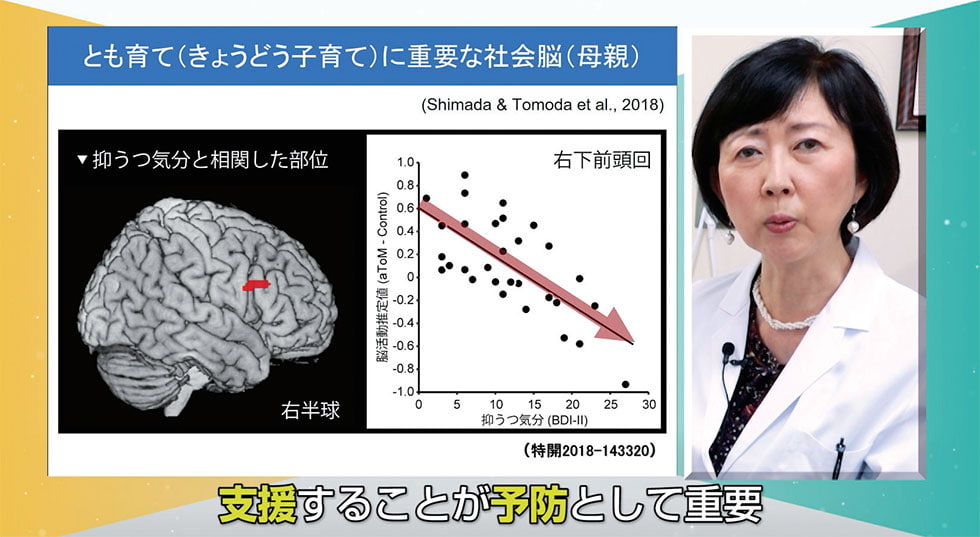Exhibits at the Science Communication Event "Science Agora"
RISTEX exhibits various projects at Science Agora to facilitate realization of a society where each person can lead a diverse and rich life.
Our child, maybe a little different . . . series (FY 2016 to FY 2018)
From 2016 to 2018, we held a series of public symposiums based the theme of developmental disabilities we called "Our child, maybe a little different . . .", which has been attracting increasing interest in recent years. The first symposium in 2016 was aimed at people with developmental disabilities and their families, which helped to deepen an understanding of the importance of early detection and rehabilitation of children with developmental disabilities and support for families. Since the second symposium in 2017, we have hosted events especially for people involved in support (childcare staff & teachers, medical and welfare workers, local government officials, etc.) in order to improve assistance provided to supporters, as the current situation is one in which it is difficult to cooperate, while at the same time the stakeholders surrounding the children and their families come from an extremely wide range of fields and occupations.

Our future food?! Find out and talk about "cultured meat" (FY2019)
In 2019, we held a forum on the topic of "cultured meat", which is attracting interest as a food of the future (collaboration of 5 JST departments).
Due to the explosive growth of population and the effects of climate changes, the gap between global food supply and demand is reported to become prominent by around 2030, and the production of meat is likely to fall behind the demand. As one of the solutions to this problem, research in production of "cultured meat" is conducted worldwide. Cultured meat is artificial meat produced by culturing of cells extracted from livestock animals. It is attracting attention worldwide as a new technology anticipated to bring about a radical food innovation. On the other hand, as it is a novel entity, it entails various issues along with the technological development, including laws and regulations, safety and security and many more.
On the day of the forum, the venue was filled with audiences. The event began with a preliminary lecture by the researcher who made the first cultured meat in the world, then specialists from a wide variety of backgrounds provided their viewpoints - from the food production in the space, the history of Japanese food culture, to the possibility of future food made possible with new technology. These talks were followed by a discussion about the future of this novel technology, with participants from the younger generations including elementary and junior high school students. The forum was attended by many journalists and overall, it seemed to have had a significant impact.
RISTEX is committed to continue providing arenas to deliberate the future vision of science, technology and society with people from various sectors and generations.

What is “Maltreatment Prevention” and “Tomosodate (Community Parenting)?”
– Nurturing the Future through Brain Science (FY 2020)
Taking “Life” as its theme, 2020’s Science Agora was the first installment of the event to be held online. As one of the outputs produced by the “Creating a Safe and Secure Living Environment in the Changing Public and Private Spheres” R&D Focus Area, RISTEX held an interactive symposium on the theme of “Preventing Maltreatment through Brain Science,” the goal of which is to prevent and reduce child maltreatment and domestic violence.
As lifestyles transform as a result of the COVID-19 pandemic, there are concerns in many countries about the various dangers that can arise in the home. A discussion was held regarding the fact that, if a family is isolated and there are no other people to talk to, anyone can be susceptible to treating children in ways they would rather avoid. It also covered how to develop a deeper understanding of maltreatment and encourage “Tomosodate,” the raising of children in the community through interactions between many people. A recording of the session is available for viewing online (approx. 1 hr).
